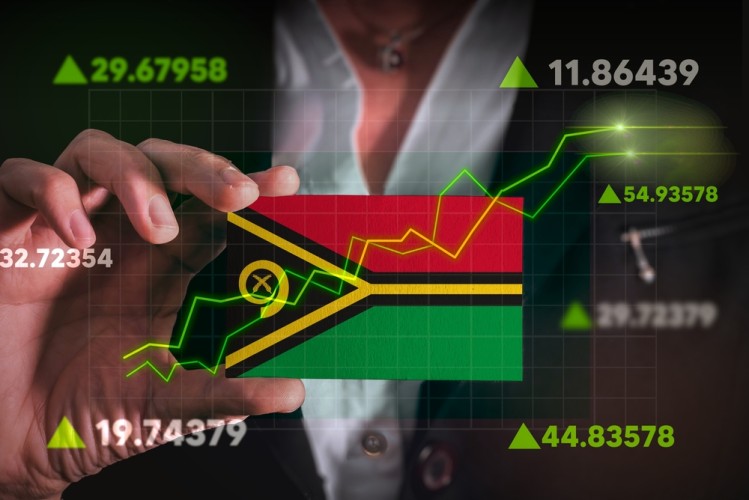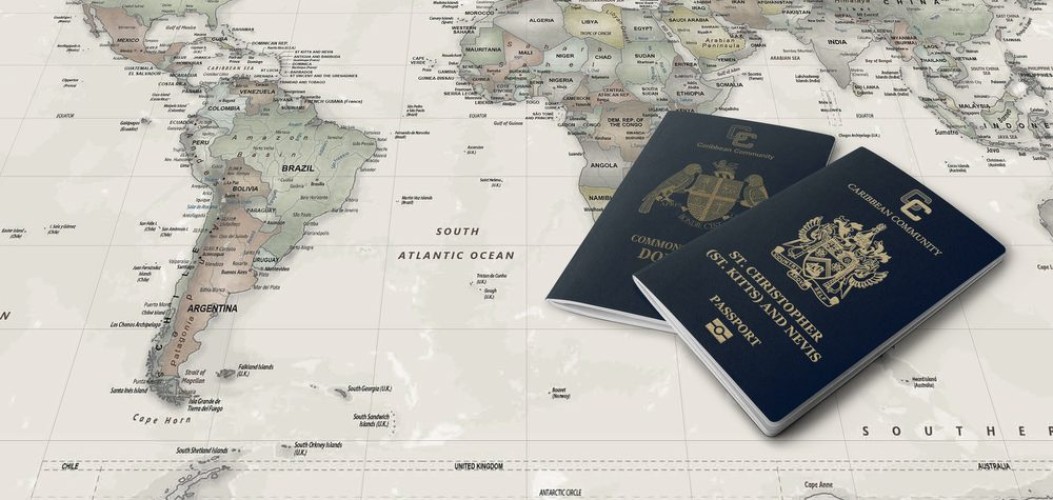Taxes in Vanuatu are the ones which, perhaps, the most favorable on the planet. The explanation is simple: many of the mandatory payments the government requires its people to pay are non-existent here.
Obtaining Vanuatu citizenship can provide individuals with access to these unparalleled tax advantages, making it an appealing option for those seeking financial freedom.
This country is significant for its special financial system developed to attract global investment. This article offers a brief overview of the main principles of taxation within the country, with a look at how it first became a haven for individuals, and then investors and businesses.
Main aspects of Vanuatu taxation system
Not only is this country a paradise in terms of weather and geography, it is also a financial haven to those who seek an ideal environment for investing and doing business. With this system in place, the country is not requiring any capital gain, inheritance, or income tax from anyone.
Moreover, the country does not impose corporate tax, and has long term benefits as far as VAT is concerned. This is particularly beneficial to startups, innovation projects, and intellectual property companies.
Even though all of this is a fact, Vanuatu does tax real estate deals, uses the VAT, imports duties, as well as social security contributions for the workers. The country also guarantees a high level of confidentiality of all financial transactions. In general, the archipelago taxing system is by far simpler than in most other countries, lowering the administrative burden on businesses and individuals alike.
The combination of these factors makes this country not just a carefree places to spend your vacation at, but also a great solution for those seeking to optimize their financial strategy.
Taxation for individuals
Vanuatu boasts an absolutely liberal approach to imposing tax on regular persons. Here are a few details:
- The country does not impose a tax on income, this is true for non-residents and locals alike;
- Capital gains are not subject to taxation either. Successful investment, asset sales, and other similar operations are tax-free;
- Your property, savings, and other types of assets, regardless of how great, are not subject to taxation;
- Property transfers to legal successors are not taxed either.
In reality, this makes the country one of the most favorable place to people seeking to minimize their tax burden.
Taxation for businesses
The archipelago is home to an ideal climate to do business in. Companies may enjoy a set of enabling policies with no excessive impact from taxing.
- All businesses are free from corporate tax.
- The single main payment article they do owe to the local government is the VAT, which, from 2018, is only at 15%.
Some companies may enjoy tax cuts for as long as 20 years, which certainly assists in driving additional capital.
- Yearly company registration fee is set to range from US $300 to US $1,000.
Absence of corporate tax and availability of benefits make Vanuatu a safe harbor to invest and facilitate company development.
General taxing benefits
While many countries are offering complicated schemes to be involved in order to be eligible and achieve growth, Vanuatu is maintaining a much simpler approach. They place emphasis not on a number of appealing incentives, but on creating a transparent and easy environment for economic involvement. This approach aims not just at reducing the tax burden, but also at driving in those who value stability and predictability of financial policy.
The main source of funds for the budget is the VAT. With that in place, some companies may be freed from this obligation for the next 20 years. Such a long period may be necessary for the company to plan their activities and investment, while maintaining confidence in the taxing policy.
Tax legislation compliance and reporting requirements
Vanuatu does not employ a complicated legislative base governing processes associated with taxation.The main law which governs both taxpayers and state authorities is the Tax Administration Act of 2020. This document establishes various aspects regarding compliance. Such may be fines for untimely payment, along with requirements to certificates of such payments.
The main advantage in this type of administration is that you do not need to present a detailed financial report to the tax authorities, all the sheets you need to provide are limited to a few declarations. The following are the basic reporting requirements sufficient to maintain a business in good standing:
Taxation on added value
For companies with yearly income above VT 4,000,000 it is necessary to register as VAT payer. However, companies with less turnover may register at will if they engage in taxable activities.
Registered companies must provide monthly VAT declarations indicating the tax amounts before the 27th date of the month following the reported one. However, smaller companies handling taxable amounts of less than VT 8,000,000 per year, are allowed to declare their information on a quarterly basis.
Companies have the right to account for VAT by sales invoices, or by individual payments. The decision influences the accounting period for this particular type of tax. In order to get a deduction against your purchases, you do need a valid VAT invoice. A registered counterpart to the deal may demand an invoice to be issued within 28 days.
Fees on real estate trading
It is not necessary to pay the government for owning property. The government has established a stamp duty to be paid when such deals are made. The stamp duty is payable before all the relevant documents are signed, and the general rate for it is 5% for each piece of property. Documents confirming payment of the stamp duty are filed with the stamping and registration office.
Moreover, it is also necessary to pay another 2% registration fee on all real estate deals to the account of the relevant stamp duty. This is payable before the agreement is signed and registered in the real estate department.
Taxation of rental income
The rental income tax also has its administrative and reporting perks. If the income exceeds VT 200,000 within any 6 months of a calendar year, the landlord needs to pay 12.5% against that amount. This tax is to be reported and paid yearly, and the relevant declaration is to be filed with the Department of Customs and Inland Revenue before March 31 of the year following the year reported.
Other duties and fees
The government has established import duties ranging from 0 до 50 percent. The specific rate depends on the product category, purpose, and policies exercised in order to support or limit specific imports.
For some goods, a higher duty is established in order to protect the local producer, or in line with the economic policy of the nation. On the other hand, the goods of primary necessity, as well as those needed for economic growth or quality of life, may have lower rates on them, or even be at zero.
Besides customs duties, the government has established a mandatory payment to the Vanuatu National Provident Fund for companies employing workforce:
- Companies pay 6% against salaries of their workers. This measure is aimed to accrue pension funds for the employees, as well as provides insurance against loss of ability or unemployment.
- These contributions must be paid monthly, along with the company tax declaration. Failure to pay, or do so timely, may lead to fines and surcharges.
- In order to pay these contributions, companies must provide salary reports detailing amounts subject to be transferred to the Fund.
These fiscal obligations are aimed at protecting and supporting the local economy and ensuring social security and well-being of the working population. Vanuatu authorities care that there is a balance between encouraging foreign investment, and protecting national interest, as reflected in the customs and taxation policies of the country.
FAQ
No, the law does not impose any income tax on people, regardless whether they are residents or not.
The main obligation companies must pay is the VAT, along with yearly registration renewal fees.
In addition, companies employing workers pay social security fees dependent on salaries they provide to their employees. When importing goods, there may or may not be specific customs duties.
Businesses may be freed from paying the VAT for up to 20 years in business.
Owning property is not subject to taxation, but each property deal presumes certain fees, including stamp fees.
The country has different tax benefits and businesses may be release from the duty to pay tax for a certain period. Besides that, some exports may be freed from having to pay the VAT. Some goods are free from customs duties.
You need to apply to the Department of Customs and Inland Revenue and obtain a tax identification number (TIN).
Vanuatu remains one of the few places on Earth to provide maximum support for business and investment.





